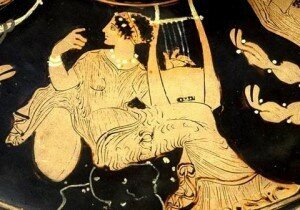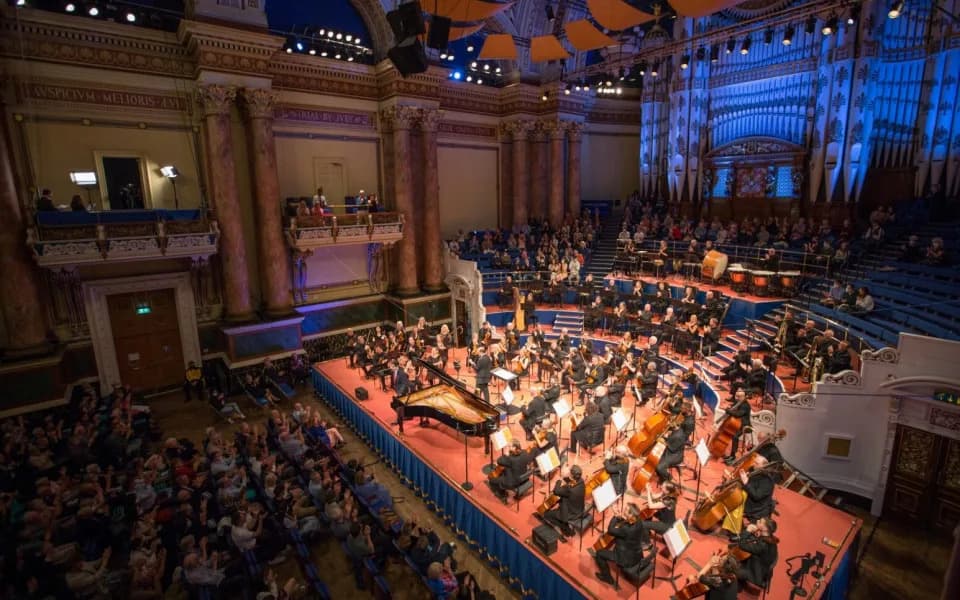 “Ideas lie everywhere like apples fallen and melting in the grass for lack of wayfaring strangers with an eye and a tongue for beauty, whether absurd, horrific, or genteel.” – Ray Bradbury, writer
“Ideas lie everywhere like apples fallen and melting in the grass for lack of wayfaring strangers with an eye and a tongue for beauty, whether absurd, horrific, or genteel.” – Ray Bradbury, writer
A very good friend of mine is a writer, and our conversations often touch on the subject of creativity and the notion of “feeding the muse” – how we stoke up reserves of inspiration when these become depleted through our creative work.
Inspiration itself is hard won. It does not come from nowhere. “Light-bulb moments” are rare and most creative people – musicians, writers, artists – will agree that the best way to foster creativity is through a consistent daily routine. But when that creativity fades, “what comes out must be put back”, as my writer friend would say.
Elgar: In Smyrna
In his collection of essays entitled Zen in the Art of Writing, the writer Ray Bradbury sets out his techniques for cultivating inspiration. Although primarily aimed at writers, these techniques are equally applicable to musicians, and I have highlighted a number of them below, using Bradbury’s original suggestion as a basis to guide the musician seeking inspiration.
“Collect Experiences Instead of Things”
Experiences are the staple diet of the Muse, and the richer our experience, the better fed and healthy the Muse will be. For the musician, experiences are not only musical ones (listening to music, going to concerts, collaborating with other musicians), but life experiences in general – relationships, travel, sights and smells, interactions with others, events large and small. All feed the creative Muse and have a bearing on our personal music making.
“Read Both Trash and Treasure”
For “read” substitute “listen”, and value every listening experience – the good, the bad and even the ugly! Listening is a fantastic source of inspiration for the musician (something which I feel some younger musicians and students in particular do not engage with enough). Listen to great artists and recordings, and the “pulp fiction” of recordings too. When working on a specific piece of music, listening to a selection of recordings of the same work can offer remarkable insights and enable one to create a personal vision for the music. If one remains open-minded, there is always something to be learnt from a recording or performance one dislikes, or a piece of music one regards as “bad”.
“Write [Play] With Zest”
Our passion, love and excitement for what we do drives us and feeds the Muse. We should approach each practice session with excitement, asking ourselves “what can I do today that is different, or new?”
“Make Lists”
Make notes of experiences which fuel the Muse and reflect on how those experiences have influenced your music making. Lists enable us to organise our thoughts more coherently and provide focus when it comes to practising and reflecting on our music.
“Run Fast, Stand Still”
Bradbury urges writers to “strike while the iron is hot!” to get ideas down quickly
“The faster you blurt, the more swiftly you write, the more honest you are”
This is tricky for musicians, for slow, considered practising is essential to learn music deeply and retain it. But I agree with his statement that “in delay comes the effort for a style”. In order to create a personal musical identity, vision and sound, we should strive to be spontaneous, driven by our musical instincts rather than the desire to imitate or aspire to be someone we are not.
“Choose Your Friends Well”
Musicians, like writers and artists, seek affirmation and endorsement from those around them. The best critique often comes from those who best understand the exigencies of the profession – i.e. fellow musicians. Seek feedback and critique from trusted friends, colleagues, teachers and mentors whom you know will support and encourage you.
As Bradbury says, “Who are your friends? Do they believe in you? Or do they stunt your growth with ridicule and disbelief? If the latter, you haven’t friends. Go find some.”
“Train Your Muse”
Just as we practice regularly and intelligently, as an athlete trains, so the Muse must be trained. A well-trained, well-fed Muse allows us to say what we want in our music without feeling restrained and to be spontaneous, making music “in the moment” which brings vibrancy, excitement and genuine expression to our performances.
Schubert: Symphony No. 9 – 2nd movement
More Opinion
-
 The Musician’s ‘Non-Negotiables’ Want to level up your music practice? Take inspiration from 'The Bear'
The Musician’s ‘Non-Negotiables’ Want to level up your music practice? Take inspiration from 'The Bear' - The 12th Hamamatsu International Piano Competition
Judgement Explore how they're setting new standards in competition judging -
 Has The Leeds Piano Competition Gone Woke? The Leeds Piano Competition's new guidelines spark debate. Share your thoughts!
Has The Leeds Piano Competition Gone Woke? The Leeds Piano Competition's new guidelines spark debate. Share your thoughts! -
 Nurturing the Musical Brain It is essential to make music part of someone’s development as early as possible
Nurturing the Musical Brain It is essential to make music part of someone’s development as early as possible



